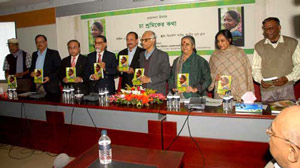
Extrajudicial killings in Bangladesh
Extrajudicial killings are a serious concern in Bangladesh. Police and the Rapid Action Battalion (RAB) allegedly kill people in their custody. Initially, RAB used the term “crossfire” to explain the circumstances of killings in its custody. It changed the terms to “shootout” or “encounter” in 2009. RAB, created in 2004 to serve as an elite anti-terrorism/crime force, is much-talked-about security agency for extra-judicial killings.
According to Ain O Shalish Kendra, a human rights organization, since RAB’s creation there has been 1,057 deaths under its custody (as of 2009). In 2004, 114 died in the hands of RAB, which rose to 320 in 2005. In 2006 the killed numbered 246; in 2007 it was 128; in 2008 it was 139; and in 2009 it was 110. Since early January 2009 when the Awami League Coalition government assumed office till September 2010, the persons facing extra-judicial killings stood at 200.
The High Court gave rulings on 17 November 2009 asking the government suo moto to explain the extrajudicial deaths. In the pretext of continued killings (11 illegal deaths since 17 November) the High Court passed and order on 14 December 2009 banning all such killings till the previous case was disposed of.
According to human rights watchdogs extrajudicial killing (of fatwas) still continue. According to human rights organization Odhikar that released a report on 1 October 2010, one extrajudicial killing took place in Bangladesh every three days since January to September 2010. Of the 90 victims during this period 40 were killed by RAB, 33 by police, 8 by the joint team of RAB and police, 5 by the RAB police-Coast Guard joint team, 3 by the RAB Coast Guard and one by the BDR. Ain O Shalish Kendra put the total figure at 95.

